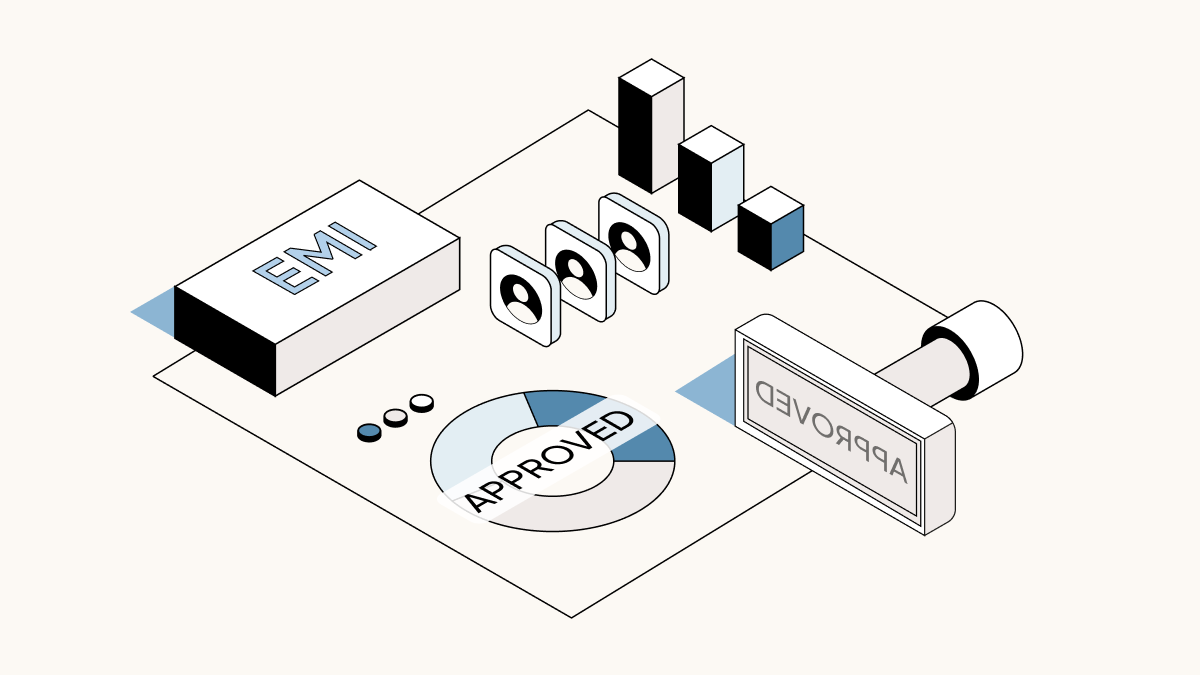As the UK’s most popular employee share scheme, the Enterprise Management Incentive (EMI) scheme offers startups a tax-efficient way to attract, motivate and retain top talent.
Before setting up an EMI share plan for your company, it’s important to check whether you meet the EMI eligibility criteria set by HMRC. Otherwise, the share options you issue to your employees might not qualify for favourable tax treatment.
To save you time, this article outlines the key requirements and limits of the EMI scheme for companies, employees and option grants.
EMI qualifying conditions for companies
An EMI-qualifying company must satisfy the following criteria at the time of the EMI option grant:
-
Have fewer than 250 full-time equivalent employees (including company directors);
-
Have no more than £30 million in gross assets. If your company is part of a group, the total gross assets of the group must not exceed this limit;
-
Be an independent entity (i.e. no more than 50% of your company’s ordinary share capital can be owned or controlled by another company). There must not be any arrangements for your company to become a 51% subsidiary in the future;
-
Own (directly or indirectly) more than 50% of each subsidiary company, if it has any, and more than 90% of any property managing subsidiaries. All subsidiaries must also meet the EMI qualification criteria;
-
Have a permanent establishment in the UK (where “establishment” means either a fixed place of business or an agent acting on your company’s behalf);
-
Operate a qualifying trade or service. Disqualifying activities and industries include:
-
Dealing in land, commodities, futures or financial instruments (such as shares and securities)
-
Financial activities (such as banking, insurance and money-lending)
-
Providing legal or accountancy services
-
Farming or market gardening
-
Property development
-
Shipbuilding, coal production or steel production
-
Operating or managing hotels (or comparable establishments), nursing homes or residential care homes
-
A full list of excluded trading activities can be found on the UK government website.
-
EMI qualifying conditions for employees
To be eligible for tax relief under the EMI scheme, a grantholder must:
-
Be a UK resident and taxpayer;
-
Be a legal employee or director of the issuing company or any qualifying subsidiary (i.e. on the payroll);
-
Work a minimum of 25 hours per week (or at least 75% of their working hours) for the issuing company or any qualifying subsidiary;
-
Not have a material interest, or the rights to acquire such an interest, in the company. For instance, the employee must not hold more than 30% of the company’s ordinary shares, either alone or with an associate – such as a business partner, direct relative (excluding siblings), spouse, civil partner or trustee of certain trusts.
Qualifying employees (or directors) won’t be taxed until they sell the shares obtained by exercising their EMI options. Any gains above the annual capital gains allowance of £6000 are taxed at 20%. However, if the options or shares are held for longer than two years before being sold, the grantholder can benefit from Business Asset Disposal Relief (BADR). This means they’ll only pay 10% capital gains tax (CGT) upon sale of their shares.
EMI qualifying conditions for option grants
Even if your company and its employees qualify for the scheme, you need to follow certain rules when issuing share options to secure EMI tax advantages:
-
The options must be awarded under an EMI share plan intended to recruit or retain employees, rather than to avoid tax;
-
The option grant must represent the right to acquire ordinary shares that are fully paid up and not redeemable. These rights must be non-transferable, except in the event of the optionholder’s death;
-
The options granted to each employee within a three-year period must not be worth more than £250,000, based on the shares’ unrestricted market value (UMV) on the award date. Note that any Schedule 4 Company Share Option Plan (CSOP) options granted by the company count towards the maximum individual entitlement;
-
The total value of unexercised EMI options granted by a company must not exceed £3 million (UMV). Any options issued beyond this limit won’t benefit from EMI tax relief;
-
The options must be exercisable within ten years of being granted, whether the exercise is subject to time-based or performance-based vesting conditions. Tax relief upon exercise won’t apply to EMI options exercised after this ten-year window.
EMI advance assurance
If you’re uncertain about whether your company is eligible for EMI, you can apply for advance assurance from HMRC. While this does not guarantee that your EMI share plan will meet the requirements – as HMRC can’t provide assurance about the eligibility of your employees or future option grants – it’s a written indication that your startup is likely (or unlikely) to be a qualifying company.
For more information about the advance assurance application process, consult HMRC’s Employee Tax Advantaged Share Scheme User Manual.
EMI share plans from Carta
Once you’ve verified that your company and its employees qualify for the EMI scheme, you’re ready to set up an EMI share plan with Carta. Our in-house experts work with you to deliver a share plan that follows market standards. You can start awarding equity to your employees as soon as your plan has been legally adopted and your option pool is authorised.
To help you stay compliant when issuing EMI options, the platform will automatically notify you if you’re at risk of exceeding the scheme limits or when your company valuation is close to expiring. What’s more, with a Carta Grow or Scale subscription you can request EMI valuations as often as you need, at no extra cost.

